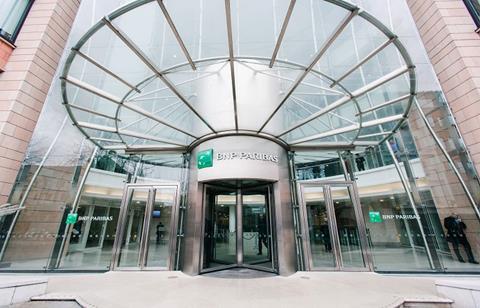
International banking group BNP Paribas uses wearable technology as part of its health screening process, to provide its 3,500 employees with personalised data to help them make healthy lifestyle choices and improve their physical and mental wellbeing.
The wearable technology initiative, provided by Firstbeat, was launched two years ago as part of BNP Paribas’ wider health and wellbeing programme. It involves employees wearing an employer-provided electrocardiogram (ECG) strap, which measures the heart’s rhythm and electrical activity, for three days. The results are interpreted by an on-site physiologist, who then explains the measurements and provides coaching to individual staff members based on their specific results.
Ian MacKenzie, head of pension, benefits and wellbeing at BNP Paribas, explains: “We tried to make it more tailored to individuals and to their individual risk, so things like stress and burnout are a risk for some people. Being a bank, we have lots of data-driven people, so they like to see data; [it] brings it to life when [employees] can see what the impact is on [their] physiology.”
Primarily, employees are referred to the Firstbeat initiative if they demonstrate high stress levels during their health screening. The screenings, which are available for all employees, are conducted by the on-site physiologist. “If their health screening shows that they’re particularly stressed, they can do this to see their physical stress over several days and also their recovery time,” MacKenzie adds. “For example, the impact of alcohol before sleep.”
The on-site physiologist can also approve employees to be re-tested, to see whether lifestyle changes employees are making, such as around exercise, sleep or diet, are having a positive effect on their health.
During Mental Health Awareness Week in May 2019, BNP Paribas promoted the wearable technology programme more broadly to staff using presentations; the on-site physiologists explained how the initiative works and how employees can request a device to use. This communication was designed to encourage more employees to participate in the programme; BNP Paribas has 20 ECG straps available to be loaned to staff.
As well as individual staff members, teams of up to 20 people can also participate in the Firstbeat programme. The data collected from this is aggregated to show a collective team result as opposed to the personalised results that would be shown to an individual employee.
To date, MacKenzie estimates that a couple of hundred people have gone through the Firstbeat programme, as well as three teams.
He concludes: “It’s a different way of approaching people and getting engagement; there are standard wellbeing events [employers] can run, whereas personalised data for individuals can be quite interesting.
“It’s an alternative way of engaging with people about their health and there are some people that maybe won’t engage with a written or presentation type message about wellbeing or managing stress, [but they] will engage with a little thing on their wrist that pops up on their phone that gives them nice, pretty graphs as to their stress, for example.
“It’s about getting people to recognise their own issues and teach them support, be a bit more open about that.”
Read more...
Top tips on how to use wearable technology effectively within benefits and reward
David Mendel: Clear guidelines are needed for wearable technology in the workplace











